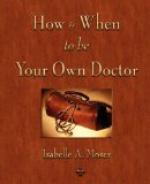In my household we have no moral objection to eating meat. We do have an ethical objection in that meat eating does not contribute to our health. But still, we do eat it. A few times a year, for traditional celebrations we may invite the children over and cook a turkey. A few times for Thanksgiving when the children were going through their holier-than-thou vegetarian stage, I purchased the largest, thickest porterhouse steak I could find at the natural meat store and ate it medium-rare, with relish. It was delicious. It made me feel full for hours and hours and hours. I stayed flat on the couch and groggily worked on digesting it all evening. After that I’d had enough of meat to last for six months.
When milk is pasteurized, the proteins in it are also altered in structure. Not so severely as egg white is altered by cooking because pasteurization happens at a lower temperature. But altered none the less. And made less digestible. Pasteurizing also makes milk calcium far less assimilable. That’s ironic because so many people are drinking milk because they fear they need more calcium to avoid osteoporosis and to give their children good teeth. What pasteurized milk actually does to their children is make them calcium deficient and makes the children toxic, provoking many colds, ear infections, sinusitis, inflammations of the tonsils and lung infections, and, induces an allergy to milk in the children.
The Development Of Allergies
There are three ways a body can become allergic. (1) It can have a genetic predisposition for a specific allergy to start with. (2) It can be repeatedly exposed to an irritating substance such as pollen when, at the same time, the body’s mechanism for dealing with irritations is weakened. Generally weak adrenals causes this because the adrenal’s job is to produce hormones that reduce inflammation. Once the irritating substance succeeds at producing a significant inflammation, a secondary reaction may be set up, called an allergy. Once established, an allergy is very hard to get rid of.
(3) in a way very similar to the second, but instead of being irritated by an external substance, it is irritated by repeatedly failing to properly, fully digest something. Pasteurized milk for example, basically impossible to completely digest even in its low-fat form, often sets up an allergy that applies to other forms of cows milk, even raw, unpasteurized cows milk or yogurt. Eating too much white flour can eventually set off a wheat allergy. My husband developed a severe allergy to barley after drinking too much home-brewed beer; he also became highly intolerant to alcohol. Now he has allergic reactions to both alcohol and barley. And gets far sicker from drinking beer (two separate allergies) than from wheat beer, hard liquor or wine (only one allergy).
Eating too much of any single food, or repeatedly eating too much of an otherwise very good food at one time, can eventually overwhelm the body’s ability to digest it fully. Then, the finest whole food products may set up an allergic reaction. Worse, this allergic reaction itself subsequently prevents proper digestion even when only moderate quantities are eaten.




